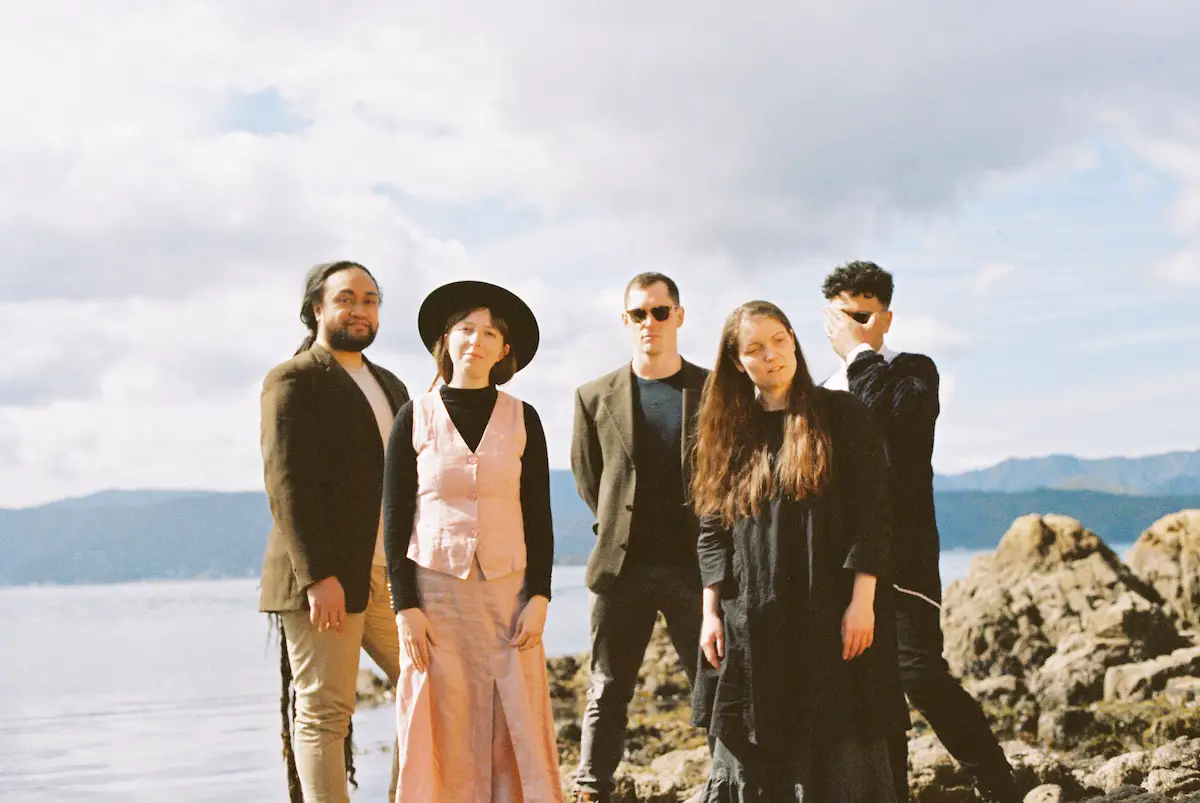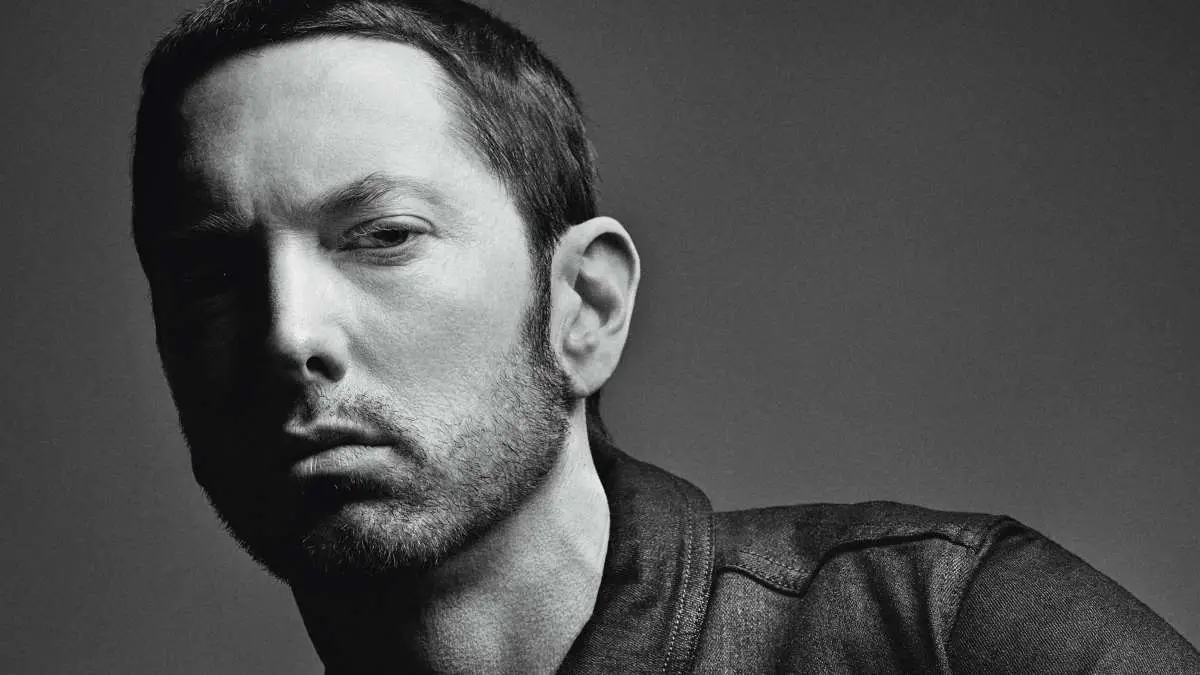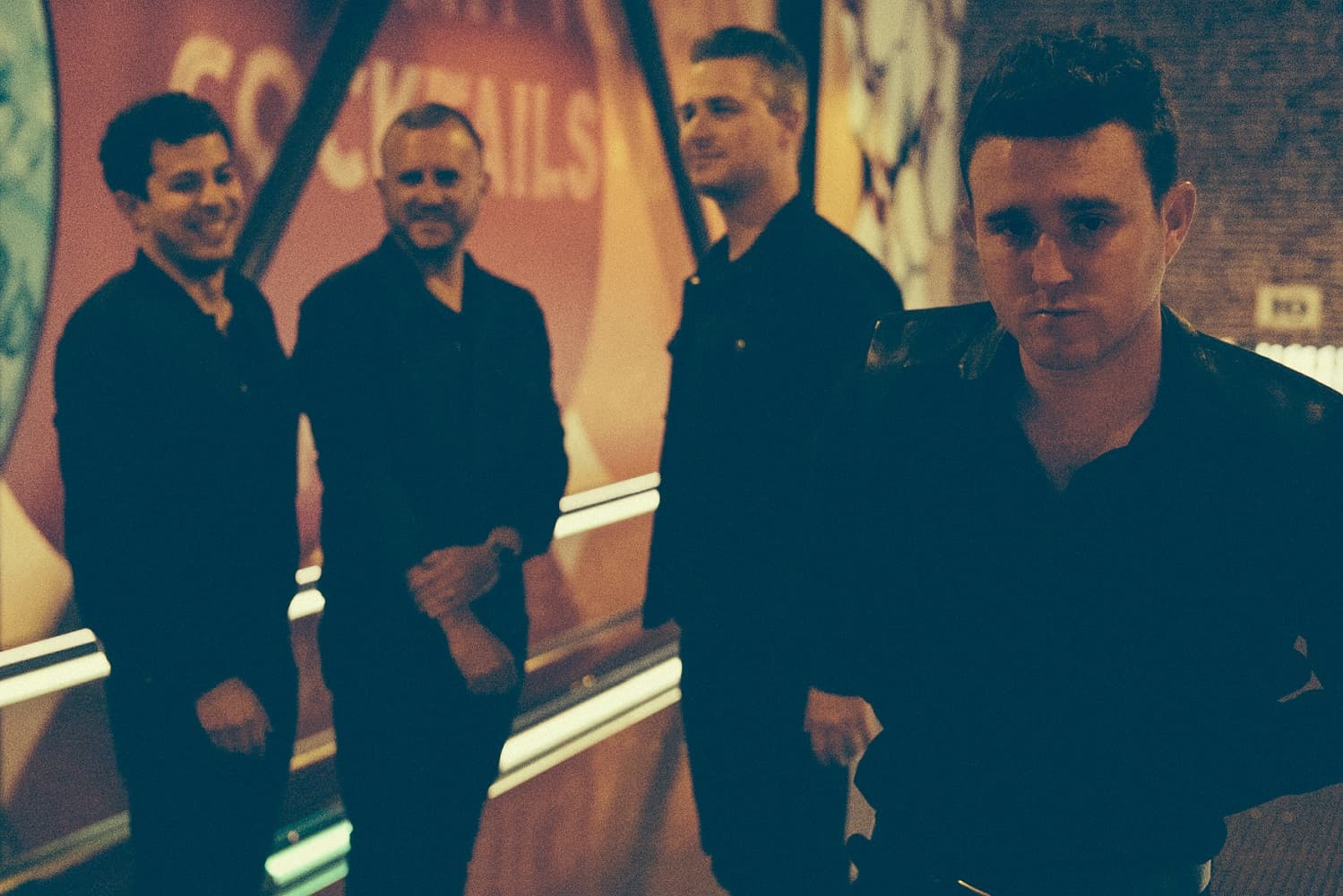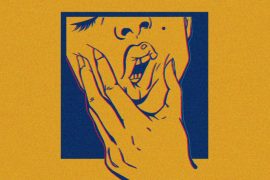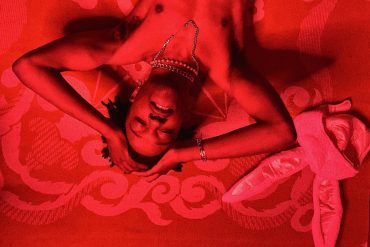Somewhere on the road between Pittsburgh and Washington D.C., Real Estate’s Martin Courtney rides the tour bus for their Infinite Jangle Tour and chats with Atwood Magazine about the creative unconscious, singing to himself to get through lockdown, and their latest record, ‘Daniel.’
Stream: ‘Daniel’ – Real Estate
There’s been enough darkness, so I was trying to make something that felt light because that’s what I wanted out of music.
It is always a comfort to be told, “Yeah, this is weird, you’re not insane” by a friend.
It’s nice to feel their reassuring hand on your shoulder and see their nod of agreement. Even more comforting when accompanied with some laid-back soft rock acoustic guitar and pedal steel. This is how indie rock veterans Real Estate’s sixth studio album, Daniel (February 2024, Domino Recording Co.), begins. In the song, “Somebody New,” frontman Martin Courtney is our equally bewildered friend, confessing to us in cryptic lines, “It never ends / inside the painted egg is another egg.”
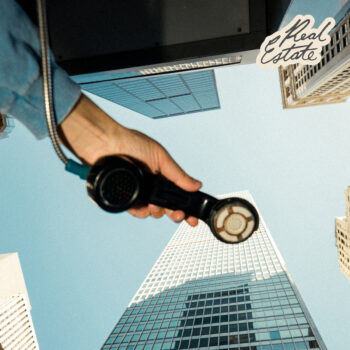
It’s hard to define what “it” is, or the painted egg nesting dolls he’s referring to, but my gut says it’s something to do with the strange feeling that comes with the perpetual renewal of time––the clock hand moving in a circle, the week always cycling back to Monday, the 9-5 grind feeling a lot like Groundhog Day… This discomfort with life’s repetitiousness isn’t a simple suburban disaffection, however. Over the course of the conversation with Courtney, it became clear that the album’s dazed ennui has its roots in COVID-19’s lockdown, which was the weirdest of all weird times.
On February 28, 2020, Real Estate released their fifth studio album, The Main Thing, with a 23-date U.S. tour to accompany it. Just a couple of weeks later, the world was shut down because of COVID-19. The band had to cancel all their touring and promotional plans and enter a national lockdown. It would be another four years before the band’s next album release tour, after 15 years of being a band.
“I think the lyrics on this record are definitely me just trying to figure things out,” Courtney admits to Atwood Magazine, laughing a little. “To work through a sort of identity crisis.” The songs were “me addressing myself, actually!” The result of his emotional processing is an album that feels like a friend comforting another friend – “Hey buddy, what’s got into you?… Do the best that you can do.”
Listening to Daniel feels like cycling through suburban streets as the sun goes down in late summer.
The asphalt still holds the heat of the day and smells sweet, the small leaves of the birch tree trill gently in the breeze on the lawn. All that warmth and nostalgia.
“I didn’t want it to sound like an indie rock record,” Courtney says. He wanted it “to feel very warm and organic, sort of genre-less.” The melodies and tempos are easy listening, but the album is by no means lazy or sloppy. Created in just nine days in a Nashville studio with Daniel Tashian, the album took inspiration from R.E.M.’s Automatic For The People. Daniel has similarly evergreen melodies, acoustic guitar with a swaying strumming pattern––just without the rocky builds and with a sparer band, less angst and more of a detached ennui. “To me, I like to write a song that makes me feel, ‘Have I heard this somewhere?’” Courtney goes on. “If it has this warm feeling where you’re like, ‘Oh, this reminds me of other music that I love.’”
While on the road for their Infinite Jangle Tour this April, Courtney chatted with Atwood Magazine about his album manifesto that he emailed to his bandmates, tapping into the creative unconscious, singing to himself to get through lockdown, and the creation of their latest record, Daniel, which you can read below.
— —
:: stream/purchase Daniel here ::
:: connect with Real Estate here ::
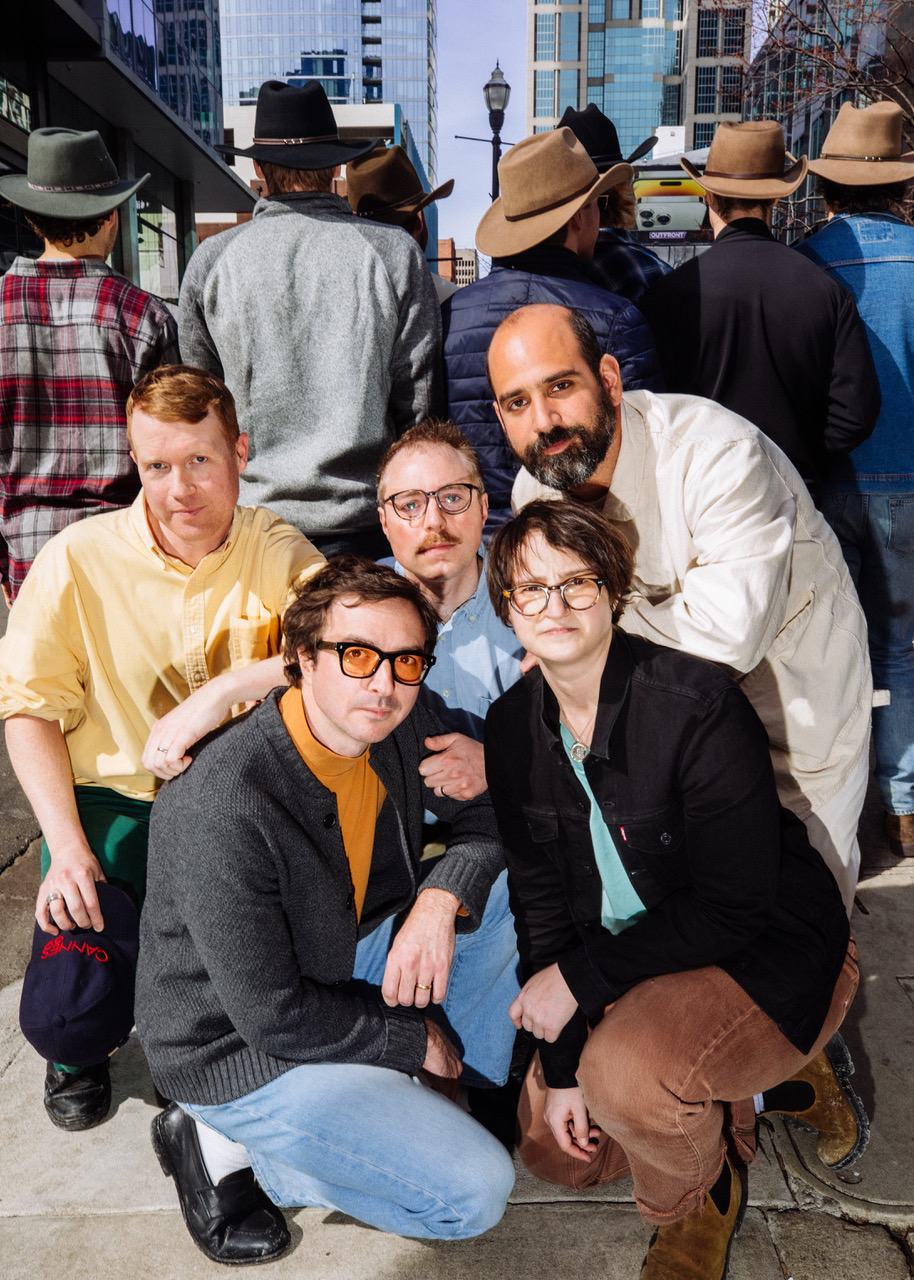
A CONVERSATION WITH REAL ESTATE

Atwood Magazine: Thanks for doing this! How's it going?
Martin Courtney: Good! We’re somewhere in Pennsylvania, I think, driving to DC.
Wow. Your tour sounds kind of intense, almost back-to-back shows in different states.
Martin Courtney: Yeah, we had a day off yesterday, so that was nice. Got to enjoy Pittsburgh a little bit. But yeah, a lot of travel for sure.
How are you feeling about the tour? Your first tour in quite a while, or certainly the biggest one.
Martin Courtney: Yeah, it’s been a long time since we’ve done a tour like this, a proper album cycle tour. It was like 2017, depressingly. That’s a long time. We’ve done a few things between that and now – a little tour in 2021. But yeah, it’s been nice. I mean, it’s been fun playing shows and getting back to work feels good.
What's your favorite part of touring?
Martin Courtney: Probably dinner! Before the show, after soundcheck, we have some time to kill. We usually go get a nice meal somewhere. It’s a nice chance to just relax.
Yeah, I saw your bass player is releasing a book about food and touring, which is cool. What has been a standout meal that you've had, weirdest, best?
Martin Courtney: Actually, yesterday on our day off we had a really good meal in Pittsburgh at a restaurant that I can’t remember the name of––[calls out to his bandmates in the tour bus] what was that place called? [back to the interview] Apteka. It was an Eastern European vegan restaurant. We went there with the band that’s been opening for us on this tour, Marina Allen and her band, and it was an excellent meal. Highly recommend it! So that was a standout so far on this tour. We didn’t really know anything about it and then as we were there, we were talking to the manager, and he was telling us about all these other bands that had been there, including The Smile (Thom Yorke and Jonny Greenwood). It’s funny, it’s just this little place in Pittsburgh, but I guess it’s more famous than we realized. We just kind of rolled up without any prior knowledge.
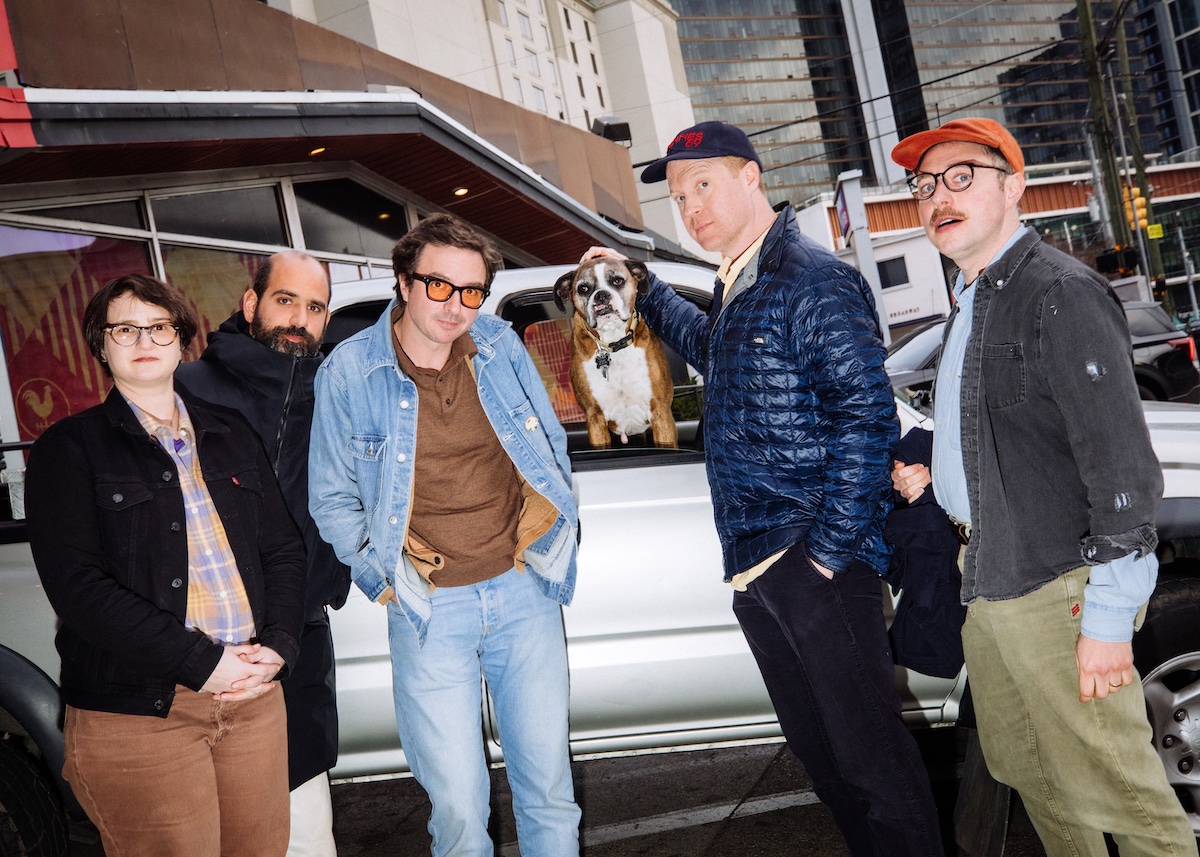
That's so fun, the kind of historic synchronicity going on there. Well, congrats on Daniel. It's an incredible album. I think it might be my favorite of your work so far.
Martin Courtney: Thank you very much – actually, I’m sorry, can you hold on one second? I just need to see what this call is. Just hold on one second.
No worries.
Martin Courtney: [Takes the call, returns] Every time I get a call from my local area code, I have to answer it because sometimes it’s the school nurse––which it was––with my kids. She’s on a field trip. I think she’s carsick on the bus or something. Anyway. So okay, yeah. You’re talking about the new record. Thank you, by the way.
Yeah, I loved it. But, actually, first, what’s it like being on tour away from your children?
Martin Courtney: It’s not fun at all. Stuff like that really sucks. It’s not fun having to travel while your kids are in school and stuff. But it is what it is.
Does the rest of the band have families?
Martin Courtney: Some of us do. My kids are the oldest. But a couple other people in the band have kids too.
It seems like the band itself is a family.
Martin Courtney: Yeah, it does. It feels that way. We’ve all known each other for a long time.
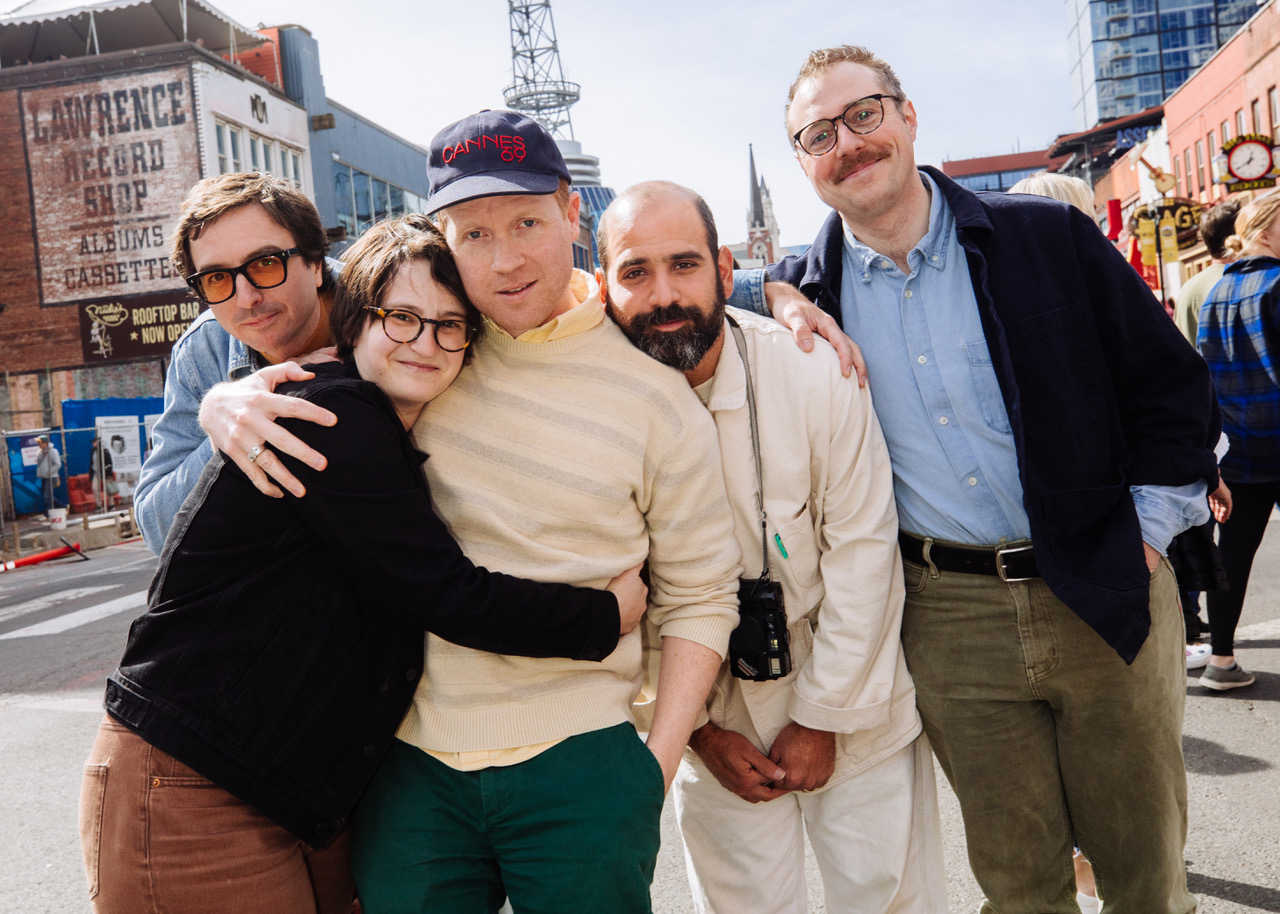
That's special. Back to your record, why did you call it ‘Daniel’? Is it because of your producer, Daniel Tashian, or another Daniel, or no Daniel at all?
Martin Courtney: It’s not Daniel Tashian. We were talking about what to name the record, and we thought it’d be a good idea to give it a person name. That’s really the short answer! Daniel was the first thing we thought of. It could be anyone, you know. We decided initially to keep this very mysterious. Obviously, everybody asks, but it’s just a name, like you name your dog Bob. I like the name because it’s kind of mysterious, especially for people who don’t have the opportunity to ask us this question, it’s like, who could it be? Who’s this Daniel character? And, it’s simultaneously the least important thing, it often has very little to do with the content of the record, but it can be important too, a good name can go a long way. The main thing was that the name came very naturally to us, so we felt like it was a good sign. We just went with it.
I think your intuition was good. It suits the name Daniel. He's grown into the name!
Martin Courtney: Yeah, he’s our boy!
I like the Danny DeVito running joke that you guys have too.
Martin Courtney: Oh, yeah, we bring him on the road with us, Danny!
I'm so intrigued about your process of writing the album. You made it in Nashville in only nine days!
Martin Courtney: Yeah, it was quick. I think we had two weeks set aside. We were basically done tracking it in about nine days, and then we started mixing and then we went home early. It moved really quickly, which was great. We were well rehearsed. We had our idea of what the record was pretty well set before we went in. Obviously, some things changed, and there was collaboration with Daniel [Tashian] the producer, but we moved really quickly. We added certain things in Nashville, like backup vocal ideas or little melodies here and there, but the melodies and lyrics were all set when we went in; I had spent 2022 writing them. I went in with 14 songs and then we came out with 11, one of which was written by Alex [Bleeker], the bass player. It felt really good to do it that way, to not labor over it, especially because the last record we made, we spent like a year working on it, off and on. It was a very long drawn-out process.
There’s not really a wrong or right way to do it, but going into this album I basically wrote a manifesto to the band. I had written maybe one or two songs, and I sent an email like, “Let’s make a record, these are my ideas: I want it to be a pop record. We should work with a more hands-on producer, someone like Daniel Tashian. We should make it an acoustic record, and I don’t want to spend more than two weeks recording it. I just want to be in and out.”
Part of that is because we’ve got families, I’ve got kids, so I can’t really go away for more than two weeks––even on tour, it’s two weeks on and two weeks off. So, the logistical thing of not being able to be away for too long, but also it sounded really appealing to just get in there and work and not have time to overthink anything. To just have the record be what it is, as opposed to recording something, sitting, listening to it, and saying, “What if we added this? What if we added that?” To me, the idea of a more sparse, more concise record, in terms of the arrangements and even the music itself, having it feel like a super tight album, filled with good ideas but not lots of ideas, was the whole point. So, it all kind of came to pass, just as I foretold my email. [laughs]
Was your sound evolution a conscious decision? I guess you said you wanted to be more pop, but there’s also a kind of country vibe appearing in there too.
Martin Courtney: We didn’t go into the studio intending to make anything that sounded country. Obviously, there’s pedal steel on a few tracks and that reads country, and we recorded it in Nashville, so that’s where your mind goes, but I think the record’s country-ish flavor is more down to the idea of making something more acoustic and a little less stylized. I didn’t want it to sound like an indie rock record. I didn’t want there to be these sort of signifiers––which I don’t even know what they would be, maybe electric guitar with delay on it or a lot of effects. I wanted all the rhythm guitar to be acoustic guitar. I didn’t want to have any synths. We ended up having some synths on the record but initially it was all organ and maybe some electric piano, acoustic guitars, 12-strings. To have it feel very warm and organic, and sort of genre-less. I didn’t want to make it sound country or Americana or anything. One of the main inspirations was R.E.M.’s ‘Automatic for the People,’ which is just a really good batch of songs. Stylistically, it’s got that acoustic thing going on. I just really liked the sonic palette of that record, and that was something we were keeping in mind – strings, organic.
It makes the sound almost nostalgic as well.
Martin Courtney: People always say that about our music, and that has to do with the melodic content as well. I think that’s great––I mean, I’m not really sure what that word means. To me, I like to write a song that makes me feel, “Have I heard this somewhere?” For it to remind me of other songs. Hopefully it’s original and not derivative of too much other stuff, but has this warm feeling where you’re like, “Oh, this reminds me of other music that I love.” It’s nice when that happens.
That’s exactly what listening to your music feels like! Zooming into specific songs, what were you envisioning for “Water Underground”? It’s very human, very light-hearted, it feels almost like a cheery prayer.
Martin Courtney: Oh, that’s interesting! Almost like the Beach Boys or something.
Yeah, it’s so interesting lyrically too. What was the journey to it?
Martin Courtney: That was actually the first song that I wrote out of this batch of songs. I really liked the melody and it gave me a good feeling, it felt like a fun direction to go in. It inspired a lot of the songwriting for the rest of the record. The melody and the chord progression create the atmosphere of the song, and, lyrically, the phrase “water underground” felt good to sing. I wasn’t too concerned with what it meant, but then the rest of the lyrics were figuring out what it meant. Then the song ended up being about figuring out where that spark of inspiration comes from. You know, you hear something that sounds interesting and cool to you, and you’re like, “What does this mean?” It’s mysterious, maybe.
I love it when the creative process is subconscious rather than conscious.
Martin Courtney: Yeah, totally. That was, for this whole record, part of the process for writing the lyrics. It’s always been the case, but I identified it this time, how once you have a chord progression and melody, coming up with lyrics is a lot of times just vocalizing nonsense until you hear something good. Then you’re building the rest of the lyrics around that. There’s a lot of that on this record, stream of consciousness and not overthinking the lyrics. In the past, it was a tougher process, it took me longer, I thought harder about it. This time, it was just if it feels good, I’m gonna leave it. Not trying to refine it too much. Having a little more confidence in the initial idea.
It's a lot of trust.
Martin Courtney: Yeah, and it feels better that way because the more you think about it, especially lyrics, it becomes more self-conscious, and I feel more ownership of it in a way that I don’t like.
That probably adds to the lightness of the record as well, because lyrics aren't overly labored.
Martin Courtney: Yeah, that was the whole MO for this record, for the whole band not just for me, allowing it to flow and feel natural and fun.
There is a lot of care, brotherly care, that comes out in the lyrics. Like the line, “Hey, buddy, what’s got into you?” in “Somebody New.” “Freeze Brain” feels a friend comforting another friend. How does friendship affect the music you guys make?
Martin Courtney: I think those two examples you gave are me addressing myself, actually! Having had the last few years, as a musician, it wasn’t the greatest. It was confusing because we couldn’t tour so it was hard to make money. My identity as musician was challenged, I was trying to find the reason to go on. I think the lyrics on this record are definitely me just trying to figure things out, work through a sort of identity crisis. [laughs]
So it was more about being a friend to yourself, being kind to yourself, accepting yourself.
Martin Courtney: For me, it was coming back to the idea of “This is what I enjoy doing and this is what I think I’m good at, so I’m going to embrace that and make the decision to keep making music.” I think that’s all in there.
It’s very uplifting to hear. It’s like you’re leaving the silence and re-entering with joy.
Martin Courtney: Definitely. I think that’s all wrapped up in the idea of wanting to make an album that feels warm and pop-y and welcoming to people. Also, there’s been enough darkness. So, trying to make something that felt light because that’s what I wanted out of music at the time. And we were hoping, assuming, that it would be something that other people would appreciate.
I can say, as a listener, that was definitely what I wanted.
Martin Courtney: And, you know, on the surface level, it’s kind of a light listen, but hopefully it feels like there are some ideas in there, that it bears repeated listens, you know, there’s some substance.
For sure. Like with “Haunted World” dealing with this haunted landscape of suburbia, dead end streets. Now that I’m listening to it in my head and you’re mentioning the timeline of writing, I don’t know whether the haunted world is lockdown or whether it’s suburbia as a concept.
Martin Courtney: Yeah, I think it’s cool to interpret it however you want to, but I was more thinking in the context of lockdown and looking out your window and being like, “Everything looks fine. But things feel bad.” Trying to reconcile that, I guess.
And then “The world is diseased” in “Freeze Brain.”
Martin Courtney: Yeah, totally. It’s all in there. It’s funny. So, some of the songs have a kind of darkness to them. It’s just where my head was at, I guess.
And didn’t feel dark – it was more like an acknowledgment of what was there, and then a turn in perspective. Like in “Freeze Brain,” the world’s diseased but let’s let the light in and have the sun.
Martin Courtney: Yeah, and we’re lucky to even be here at all!
Coming up with lyrics is a lot of times just vocalizing nonsense until you hear something good.
Exactly! So, what are your hopes for the future?
Martin Courtney: In a tenuous way, we’re thinking about the next record – or I am – just in the gathering ideas phase. I haven’t started writing. It would be really nice if we could be working on another record this year but that requires me and all of us to start writing, which is hard to do on the road. Once we have some downtime, that’s my main goal to get some songs written and keep moving.
It'll come in the right time. I know in the immediate you have the rest of this tour and then a tour in Europe later on, how are you feeling?
Martin Courtney: Yeah, I’m happy to have a bunch of shows coming up. It can be a slog, being on the road but we’re half-way through it so a lot of the hard stuff is behind us. And it’s fun to play shows. I’m looking forward to playing New York and DC, the next few shows are going to be a lot of friends and family. Yeah, Europe will be fun in the Fall, and some other shows might pop up before then. It’s all fun––I could say that this is the fun part, but also making records is fun, maybe that is more fun? To me, I love recording. But I also loved getting the chance to play every night, and it’s especially sweet because we didn’t get to do play shows with the last record. So it feels good to put the record out and play shows and do it properly, share it with people.
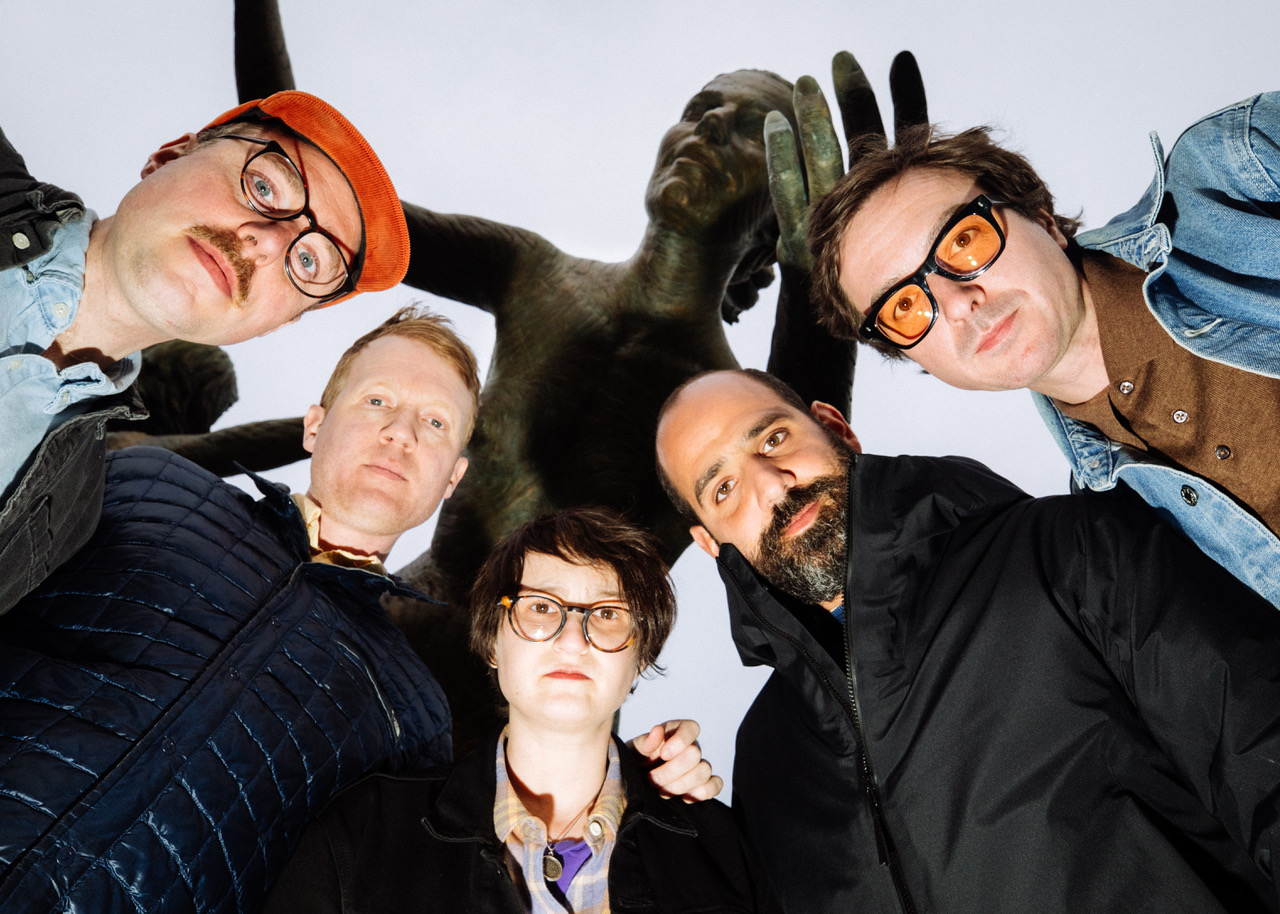
And there’s a connection that you get to see in front of your eyes when you play it live versus hearing that people are listening.
Martin Courtney: Definitely, and I don’t think I realized that until we didn’t have the chance to do it––how important that is. How integral it is to the whole process. It’s nice to get back to that.
Thanks so much for chatting!
Now having finished their Infinite Jangle Tour, Real Estate are doing some summer festivals in the US before launching into their EU/UK tour, supported by villagerrr in Europe and Far Caspian in the UK.
— —
:: stream/purchase Daniel here ::
:: connect with Real Estate here ::
— — — —

Connect to Real Estate on
Facebook, Twitter, Instagram
Discover new music on Atwood Magazine
© Sinna Nasseri
:: Stream Real Estate ::

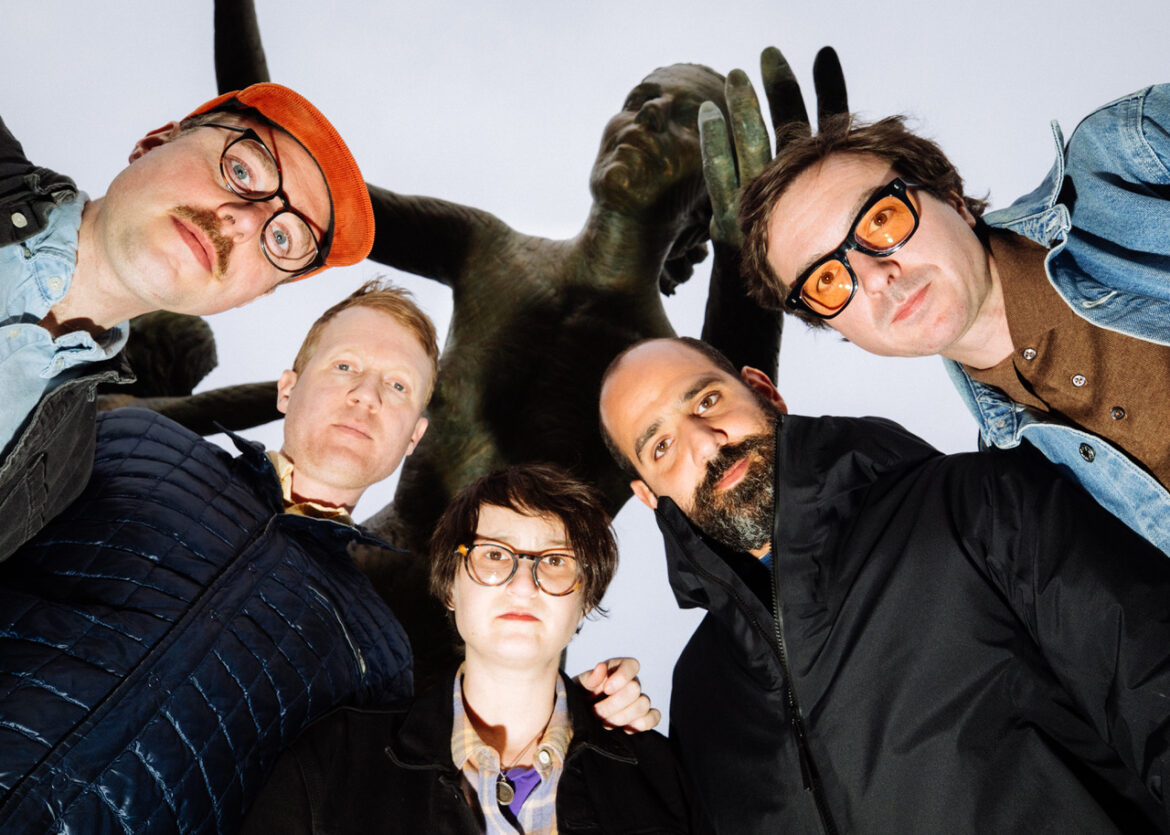
 © Sinna Nasseri
© Sinna Nasseri